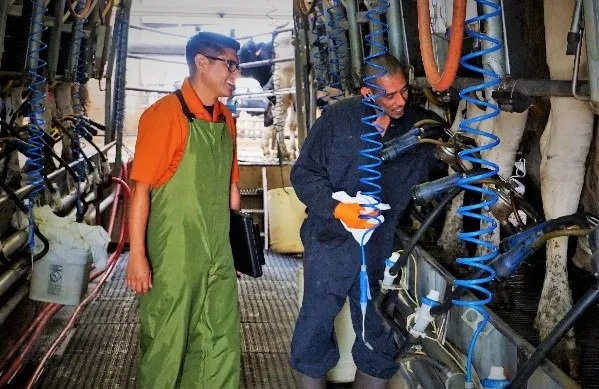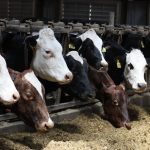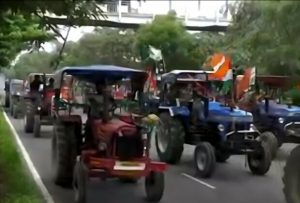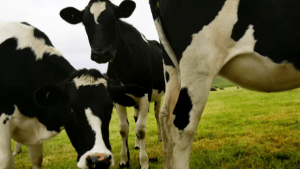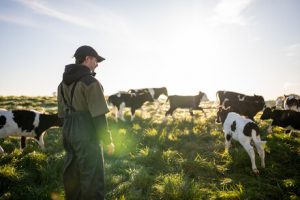
With nearly half of the nation’s farm workers lacking legal status, many Wisconsin dairy producers are concerned about what may happen to their employees after the Trump administration takes office Jan. 20.
However, Jorge Delgado, a dairy management consultant, says the situation likely will not be as dire as some have predicted.
Delgado, who was raised in Ecuador, is Director of Training for Alltech, an international company that provides products and services to dairy farmers to help them increase efficiency, productivity and profitability.
Based in Minnesota, he provides on-farm support and assists with talent development to farms throughout Wisconsin and other Midwestern states.
“I go on farms and coach, train and help motivate dairy workers in many areas,” he said. “We do coaching and employee training on calf care, milking, milk quality, cow handling and feeding techniques.”
Delgado also works with farm owners and managers to establish a better culture to help recruit and retain workers.
“For example, I visit dairies and observe how they are milking cows, and then we train a larger group of milkers in areas where they might need improvement. I would also train the one or two people who feed the animals,” he said.
For farm owners and managers, Delgado offers resources such as employee personality tests, creates customized professional videos, job descriptions and employee handbooks.
Deporting violent criminals is the priority
There were roughly 11 million immigrants in the US illegally, or with a temporary status at the start of 2022, a figure that some analysts say has increased to 13-14 million.
“There’s over 700,000 criminal aliens with criminal convictions,” said Tom Homan, who’s been selected by incoming President Donald Trump to spearhead border security.
According to Immigration and Customs Enforcement officials, as of July 2024, there are 425,431 convicted criminal migrants – and 222,141 with pending criminal charges – who have crossed the US southern border illegally and who are awaiting removal from the country.
Of these 425,431 convicted criminals, 62,231 have been convicted of assault, 14,301 convicted of burglary, 56,533 that have drug convictions and 13,099 that have been convicted of homicide. An additional 2,521 have kidnapping convictions and 15,811 have sexual assault convictions.
Although President-elect Donald Trump’s mass deportation plan will center on illegal migrants with criminal histories, Homan warns that other migrants will be subject to “collateral arrests, especially if they are residing with someone who’s the target of an arrest warrant.”

Farm workers are not violent criminals
Delgado acknowledges that many employees on Wisconsin dairy farms don’t have the proper documentation.
“But that’s also true of those working in other areas of agriculture, as well as for many working in hotels and for roofing contractors,” he said.
Recognizing that many farm workers are afraid of what might happen in the next few years as deportations increase, Delgado said, “My message to workers is to be alert, be prepared but don’t be afraid.”
He also advises farm owners to stay alert and stay informed.
“The next administration knows exactly who these migrants are and how much they are needed so our nation can survive.”
Delgado says the majority of migrants coming to the US from Mexico and Central America are here for one reason – to feed their families.
“They want to learn, want to take care of their families, be a part of the community, and they want to take care of the businesses where they work,” he said. “They really care about the work they do. They are not committing crimes, not selling drugs, not gang members.”
Dairy producers and employees would benefit from more legal opportunities
What can be done to make it easier for migrant workers to get visas to come here legally and work at these vital jobs on farms and in other industries?
“It would be a dream of so many to change the visa system that now allows for seasonal farm workers to include provision for those who work year-round on dairy farms,” Delgado said.
The H-2A visa program allows unlimited numbers of seasonal workers to enter the country if employers can show that there aren’t enough US workers available.
“These are being used mainly by workers in California, but dairy farms need year-round workers, and the workers need year-round visas, nothing much is being done to solve this problem,” Delgado said.
While dairy producers and employees would benefit from more legal opportunities for migrant workers to enter the country, that would come with added costs for the farmers and consumers.
“Those visas would come with higher wages, housing requirements and other worker benefits,” explained Delgado. “It’s a battle between what is fair and just, and what is going to work. The reality is that few farm workers are currently receiving these benefits.”
More farmers are turning to automation
Delgado acknowledged that the scarcity of labor is a major reason many Wisconsin dairy farms have installed robotic milking systems.
“Robotic milking systems are primarily on smaller dairies. But you don’t see that on bigger farms with 2,000 cows or more,” he said.
“It’s hard to find workers and keep them,” Delgado said. “We’re also seeing more large dairies going to partial robotization. The smaller farms cannot afford to hire a lot of employees. Most are family farms and have to depend on family members, and they have robots so they can take some time off.”
Employee turnover is a continuing problem for dairies, Delgado admitted.
“On average, we’re always in a high turnover mode in the dairy industry, with people coming and people leaving.”
Often workers leave because of poor communication from the owner or manager.
“In the dairy industry we’re still not doing a good job of creating the fundamental structure to attract and retain good employees,” he said.
Delgado said dairies need to establish a culture where all employees and supervisors are working for the same goal.
“Instead of just giving orders, supervisors need to guide employees so everyone is moving in the same direction,” said Delgado. “Two-way communication is also critical because if there’s a problem employees need to be able to talk to their supervisor and work together to find a solution.”
There’s a need for farm owners and managers to create better mission statements and set very clear goals.
“When we hire people they must be presented with the goals that everybody has in mind to make the business successful,” he said.
New workers often think they are not doing anything of real value, according to Delgado.
“My advice is to challenge managers and owners to make sure employees clearly understand that what they do is way more important than just milking cows, feeding cows or caring for calves,” Delgado said. “The employees are here to feed our nation, and they often do not know that. So the task for the owner is to challenge the workers and tell them that they are an important part of a much bigger picture.”
You can now read the most important #news on #eDairyNews #Whatsapp channels!!!
🇺🇸 eDairy News INGLÊS: https://whatsapp.com/channel/0029VaKsjzGDTkJyIN6hcP1K
